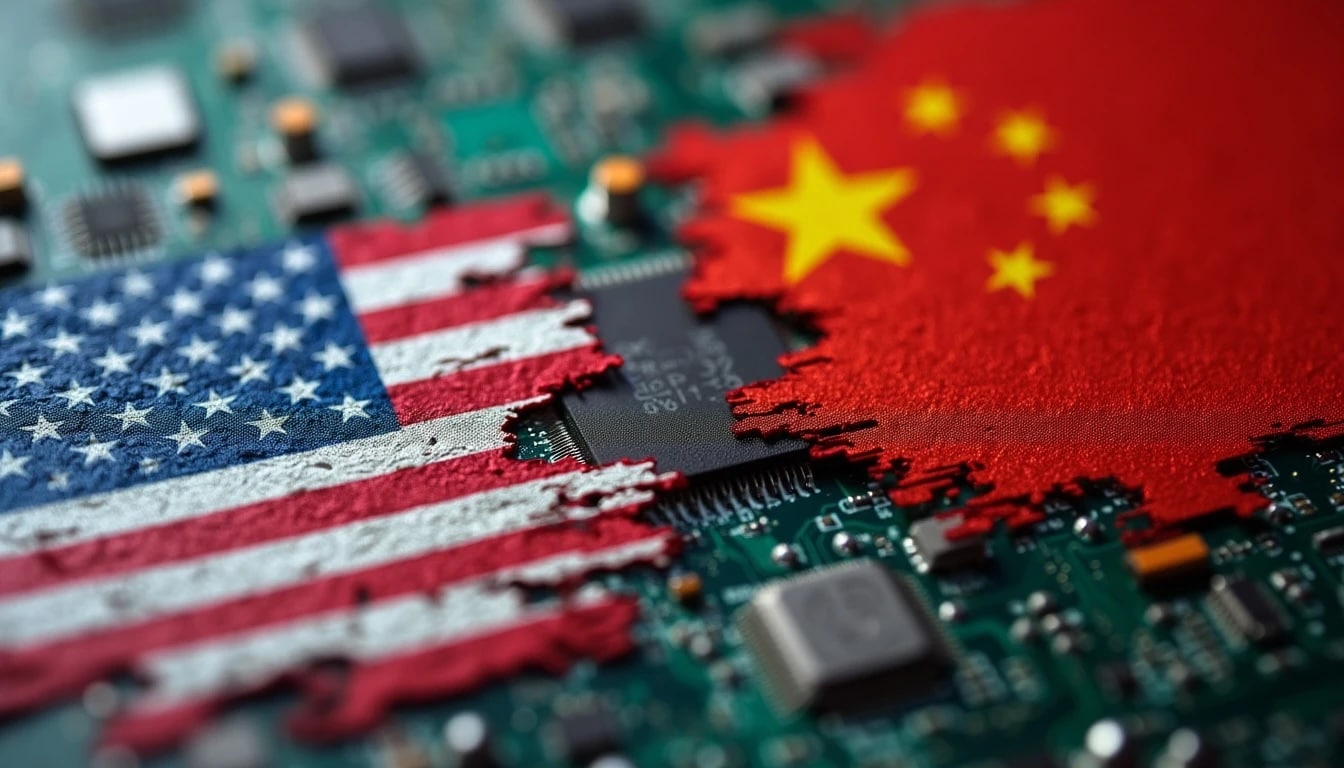Several U.S. senators from both parties have written a letter to NVIDIA CEO Jensen Huang, warning him about his trip to China. The message is clear: he should avoid contact with companies or entities suspected of collaborating with Chinese military or intelligence agencies.
The letter, signed by Republican Senator Jim Banks and Democratic Senator Elizabeth Warren, was disclosed by Reuters. In it, the lawmakers express concern that Huang’s trip could be seen as legitimizing Chinese companies that might be involved in practices viewed by the U.S. government as hostile to its strategic interests.
A trip at a sensitive time
According to announced plans, Huang is already in China, although his itinerary has not been publicly detailed. The implications of this trip have caught the attention of the U.S. Congress, especially after recent restrictions by the Department of Commerce on exporting advanced chips to China.
Although NVIDIA has formally complied with regulations—such as designing limited versions of their AI chips, including a trimmed-down variant of the Blackwell architecture for the Chinese market—these restrictions have already resulted in estimated losses exceeding $15 billion for the company.
U.S. officials fear that Chinese companies are exploiting legal loopholes or third-party routes to access technology that should be under national security controls.
“We are concerned that his trip to the People’s Republic of China could legitimize companies working closely with the Chinese military or involve discussions about exploitable loopholes in U.S. export controls,” the senators state in their letter.
NVIDIA’s stance
A spokesperson from the California-based company responded diplomatically but firmly:
“The U.S. benefits when its technology sets the global standard. China has one of the largest software developer communities in the world. AI software should perform better within the American technological stack, encouraging nations worldwide to choose America.”
This statement reflects a vision of U.S. global leadership driven by technological competitiveness, not solely by restrictions.
Unrelenting competition
Since May, it has been known that NVIDIA is developing an affordable line of Blackwell chips tailored to comply with restrictions to continue operating in the Chinese market, where competitors like Huawei and local startups are gaining ground. The market pressure is evident: China is one of the largest AI markets globally, and NVIDIA aims to maintain its relevance there.
Currently the world’s most valuable company by market capitalization, NVIDIA faces the dilemma of preserving its market position without conflicting with its home country’s laws.
The geopolitical landscape of semiconductors
This warning stems from a broader geostrategic battle over high-performance semiconductors and artificial intelligence. The U.S. seeks to slow China’s progress in dual-use technologies—applicable in both civilian and military contexts—through export controls, sanctions, and subsidies to its own industry.
However, companies like NVIDIA, operating on a global scale, must balance their economic interests with regulatory and diplomatic pressures.
Conclusion: chips, diplomacy, and global power
This incident highlights increasing political interference in international tech operations. The letter to Jensen Huang sends a message to NVIDIA and the broader industry: business dealings with China will be scrutinized closely.
Where AI chips are considered strategic assets comparable to energy resources, corporate decisions now involve not only balance sheets and market shares but also geopolitics, sovereignty, and technological hegemony.

